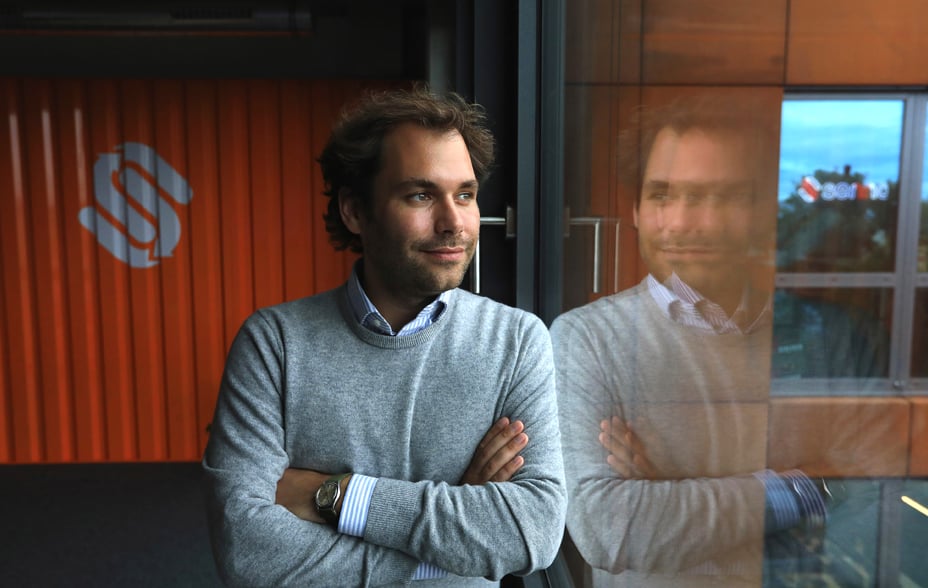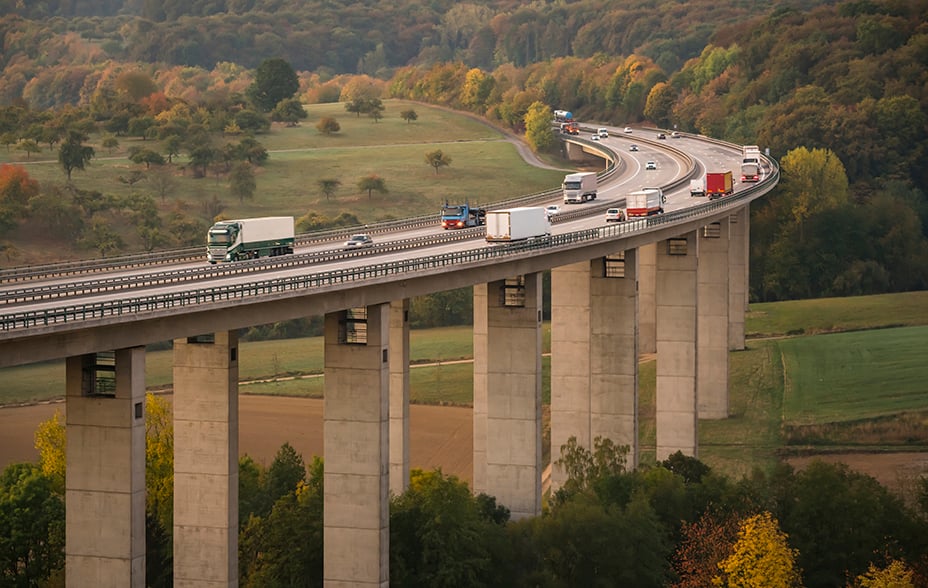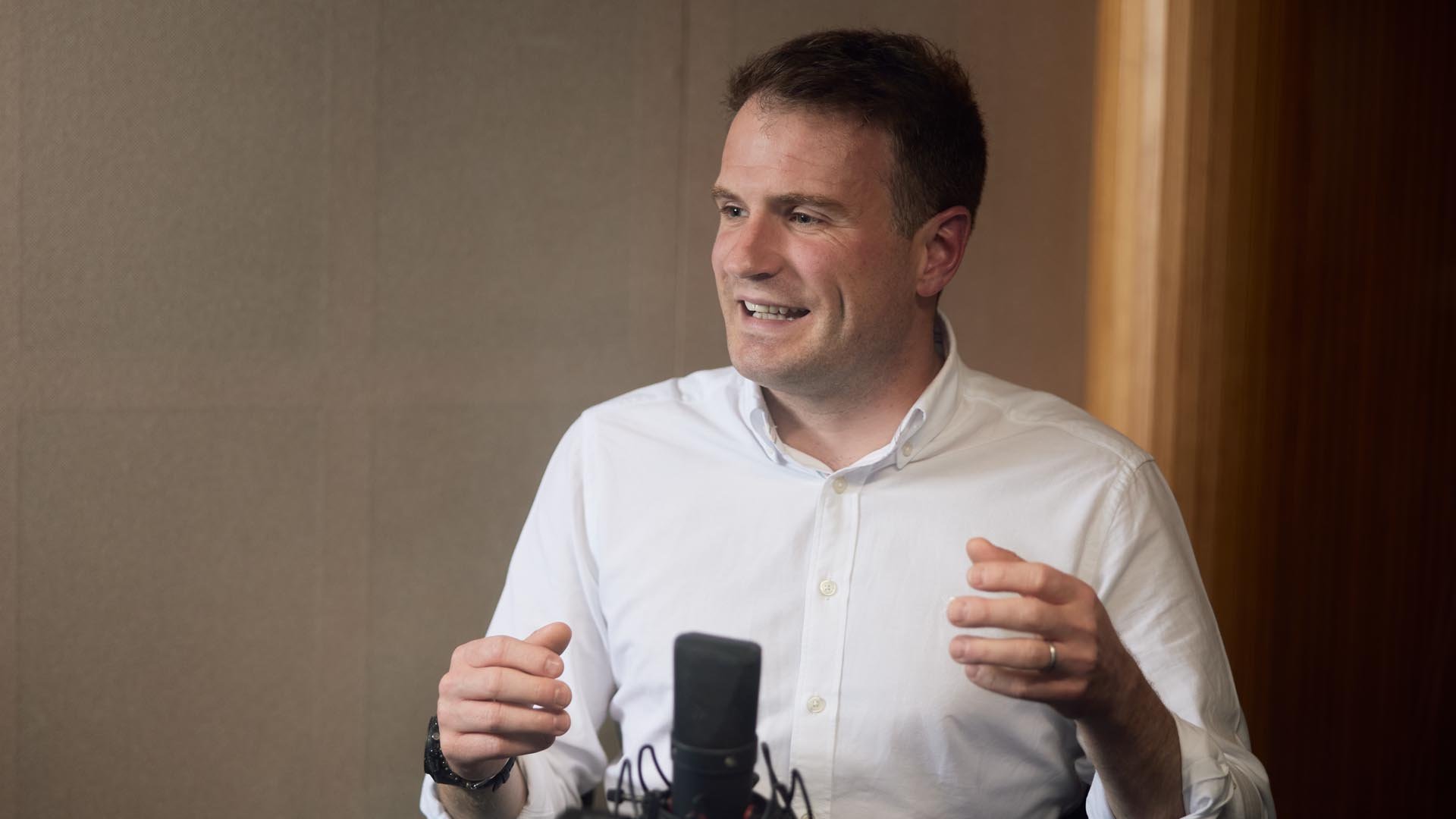Key points
Road haulage firms often travel with part-empty trucks but digital freight broker sennder has a solution, as its co-founder David Nothacker tells Stephen Paice, joint manager of Baillie Gifford European Growth Trust.

Europe’s road haulage industry is sometimes described as the backbone of its economy.
If so, it’s a spine that is out of alignment, causing numerous inefficiencies.
But Berlin-based sennder is well placed to straighten things out. The private company provides a software-based platform that promises efficiency savings and environmental benefits to both road trucking companies and the customers they serve.
For now, its focus is on jobs involving small-to-medium sized hauliers, whose staff typically rely on phone calls, text messages and hand-scrawled Post-It notes to arrange the movement of goods from A to B.
“Say you need to move a load from Naples to Milan, and you’re sitting in Germany,” co-founder David Nothacker gives by way of an example.
“You might call a local German logistics provider, and they in turn might call a guy in Milan who thinks ‘hey, I don’t want to drive in Naples because it’s too risky, but I know a guy…’.”
That haulier’s trucks are full, but he passes on the job to a neighbour, Nothacker continues.
This driver fulfils the order, but then returns home with an empty truck because he couldn’t find a client to match, adding to the delivery’s carbon footprint.
“This is how it works,” Nothacker says.
Most of the trucks on Europe’s roads are run by companies that own fewer than 10 vehicles. Being so splintered, the sector has been prone to inefficiencies.
“Two thirds of trucks are only loaded at a third of their capacity, and 30 per cent travel completely empty,” Nothacker adds. “There’s high fragmentation and a lack of technology – and that makes this a super-interesting opportunity.”
Full Loads
Nothacker dreamt up sennder while studying for an MBA, but his vision for the business was quite different when he and a fellow postgraduate founded the company in 2015.
The original idea was to offer same-day parcel deliveries by transporting goods in spare space in buses.
But the business struggled to get off the ground, and Nothacker found his resilience tested when his co-founder resigned and the business came close to financial collapse.
He saved it by convincing a wavering angel investor that he would do whatever it took to avoid failure, and then pivoted to a new business model. It ditched the buses and focused on matching goods suppliers to road transport firms with spare capacity.
sennder does this via its proprietary software platform, SennOS. The service lets dispatchers manage their fleets, bid for available jobs and accept orders via a single interface.
It also ensures that soon after one cargo is dropped off another load is picked up, to keep the trucks fully laden.
And a route-planning facility keeps road miles to a minimum, while directing drivers to refuelling stations that offer biodiesel and other advanced fuels, if so desired.
Nothacker says this can provide the final nudge required to convince hauliers to modify their vehicles to run on more eco-friendly options. Doing so can cut truck emissions by up to 60 per cent.
Goods suppliers, such as the beer giant AB Inbev, benefit as they can give preference to vehicles that use greener fuels, and then get data on how much carbon dioxide was produced as a result of an order. This helps them meet their own emissions targets.
In addition, the software tracks trucks’ location to provide reliable expected times of arrival, so that staff can be ready to unload them.
sennder says its services have already helped post and parcel delivery group Poste Italiane to shave 6 per cent off one of its €100m (£86m) annual transport budgets.

Transportation’s Future
Baillie Gifford’s European Growth Trust took a stake in sennder earlier this year. It is the fund’s second investment in an unlisted company, following an earlier deal with battery maker Northvolt. Up to 10 per cent of the fund’s assets can be invested in private businesses.
sennder has ‘unicorn status’, meaning the six-year-old business is valued at more than $1bn.
The start-up is not yet profitable, but like Amazon, one of its clients, should benefit from network effects that lead to elevated earnings: the more truckers and goods suppliers use its platform, the more effective it becomes, making it more attractive to others.
It also benefits from a founder who is taking the long view by preparing for the dawn of self-drive technologies.
“My opinion is that in the next 10 years we’re going to see autonomous trucks travel long distance from the highway entry to highway exit, maybe in a dedicated lane,” says Nothacker.
“End-to-end, warehouse-to-warehouse will take another 20 to 30 years. But whenever that happens, the industry will already have fundamentally changed.”
Scania Partnership
Nothacker believes the extra costs and safety risks involved in making this shift will put the hi-tech trucks outside the reach of smaller carriers.
One possibility is that the lorry manufacturers will step in to operate large fleets of AI-enhanced trucks themselves.
This could play to sennder’s advantage given its long-running partnership with Swedish automaker Scania, which owns a sizeable stake in the German firm.
But whoever fills the gap, sennder is positioning itself to offer the data and tools they’ll require.
“The revenue opportunity for us is huge,” says Nothacker. “The European freight industry is worth €350bn [£298bn] a year. Imagine 70 per cent of the current capacity is going to be replaced, and someone has to pick it up.”
There are sure to be bumps on the road ahead. Others are developing rival solutions, and sennder currently serves only a fraction of the market it aspires to.
But Nothacker’s vision of where Europe’s haulage industry needs to get to gives sennder a good chance of being the data provider to steer it to that destination.
Words by Leo Kelion
This article contains information on investments which does not constitute independent investment research. Accordingly, it is not subject to the protections afforded to independent research and Baillie Gifford and its staff may have dealt in the investments concerned.
This communication was produced and approved in August 2021 and has not been updated subsequently. It represents views held at the time of writing and may not reflect current thinking.
Investment markets and conditions can change rapidly. The views expressed should not be taken as fact and no reliance should be placed upon these when making investment decisions. They should not be considered as advice or a recommendation to buy, sell or hold a particular investment.
Investments with exposure to overseas securities can be affected by changing stock market conditions and currency exchange rates. The European Growth Trust has a significant exposure to unlisted investments. The trust’s risk could be increased as these assets may be more difficult to buy or sell, so changes in their price may be greater.
Ref: 10201 10001939




